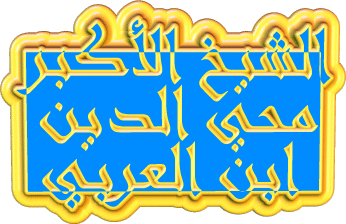Inspiring quotes from the Meccan Revelations (... more)
The scholars are unanimously agreed that if the sick person remains with the mind of the obligation, he is called upon to perform the prayer, and that what he is unable to perform, such as standing, bowing, and prostrating, is waived from him. They differed regarding one who is able to pray sitting and in the position of sitting, and in the position of one who is neither able to sit nor to stand. As for the person praying sitting, Some people said: He is the one who is unable to stand at all. Some people said: He is the one who finds it difficult to get up due to illness. As for the characteristic of sitting, some people said: He sits cross-legged in sitting, which is an alternative to standing. Ibn Masoud disliked sitting cross-legged. As for the one who is unable to stand or sit, some people said: He prays lying down. They said: He prays how it is possible for him. Some people said: He prays with his feet facing the Qiblah. And some people said: He prays on his side if he cannot![]()
--- (Check the original text in Arabic ...)
--- More Inspiring quotes from the Meccan Revelations ...
What I go to and say is that God has lifted the burden on the Muslim who is obligated to commit to God’s religion and has commanded him to fear God as much as he can, so the sick person should pray as much as he is able and as convenient for him, and he has removed the burden from him that strikes him due to the increase in his illness, and he should not neglect prayer at all even if he falls beyond his ability. Performing all the pillars and all the correct conditions for the correct prayer, because the legislator’s speech only assigns it to the state that it is capable of, for God does not burden a soul with anything but that which it can accommodate, and He does not give it or lighten it for it. More than this, in His Almighty’s saying, “God will make after hardship an ease,” connected to His Almighty’s saying, “God does not burden a soul with anything but what He has given it, so it is as if He says that if he gives it and she does it with difficulty, it is a hardship for the ![]()
--- (Check the original text in Arabic ...)
--- More Inspiring quotes from the Meccan Revelations ...
Diseases are of three types: physical, psychological, and mental, with no fourth. The physical is what we were talking about, and it is what is known by graphic scholars. Mental illnesses are concerns that involve fulfilling an obligation to God, and mental illnesses are quasi-misleading ones that taint evidence and faith, separating the mind from the rational. And between the validity of faith, as for mental illnesses with the presence of faith, faith in this believer is for the soul what the presence of the mind is for the patient with physical illness, so he performs his prayer in dialogue with his Lord and watching Him, just as Omar ibn Al-Khattab, may God be pleased with him, used to prepare the army for prayer, for the true believer has no conversation except with his Lord, nor He speaks with one of God's servants without seeing in it a conversation with his Lord in accordance with what is appropriate. The believer with mental illness speaks with his Lord in terms of his![]()
--- (Check the original text in Arabic ...)
--- More Inspiring quotes from the Meccan Revelations ...
As for mental illnesses, they are the defect in faith, and faith has two connections: connection to the existence of truth and connection to the unification of truth. As for belief in the oneness of truth in terms of itself, that is among the concepts of rational consideration according to people of theorists and among us from the point of view of our thoughts. As for the aspect of remembrance and revelation, it does not. Likewise, the unification of truth is perceived and understood by faith. Considering, and the law does not address the singularity of the essence by way of stipulating it, even if it is considered a generality, then it is not included in the path of faith. If mental illness has prevented you from valid belief in the existence of truth, it has prevented you from necessary knowledge, then knowledge of the existence of the maker when the workmanship appears to the beholder is necessary, even if he does not know the truth. The Creator, nor his essence, nor what he sh![]()
--- (Check the original text in Arabic ...)
--- More Inspiring quotes from the Meccan Revelations ...
Whoever loses the necessary knowledge is in the position of a sick person whose illness has exhausted himself, such that he does not know that he is sick or what is in it, so the discourse of Islamic law is removed from him because he has no reason. However, if he has faith or the necessary knowledge of the existence of the Creator, he denies the illness that removes the validity of monotheism by imitating it. So he is a believer, or he looks and infers and infers, then he is a knower. If he does so by looking and inferring, then his illness is if he does not accept from the Lawgiver what he brought of the attributes of the truth that taint the oneness of the essence, with the validity of the monotheism of God in mind and law. He prays and establishes his worship with this illness, for it is beneficial for him, since his mind is in it from the illness in such a way that no Only this amount of the oneness of God Almighty that we mentioned is possible, for the true believer is
![]()



